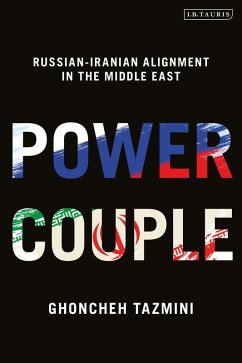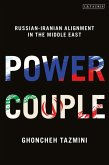Cooperation between Iran and Russia has expanded to unprecedented levels. Following the Russian offensive in Ukraine, their partnership has undergone a significant transformation, altering power dynamics and elevating Iran from a junior partner to an equal counterpart. Russia's dependence on Iran in unexpected areas has caught observers by surprise.
In her book, Ghoncheh Tazmini presents a fresh analysis of the complex relationship between Russia and Iran. She argues for a Russia-Iran 'alignment' based on their shared narratives of the international order. The two states are bound by connective tissue that is coded by ontological security preoccupations and mutual threat perceptions. Despite historical animosities and ongoing suspicions, the relationship has demonstrated resilience, fluctuating between conflict and convergence.
The Iran-Russia relationship holds decisive implications for the Middle East's future, where their interests both overlap and diverge, notably in Syria, Iraq, Yemen, and with the GCC. Tazmini delves into Russian and Iranian geopolitical aspirations in the Middle Eastern theatre and addresses how evolving international realities impact their regional policies.
Through a blend of sophisticated theoretical analysis and empirical insights, Tazmini explains why Moscow-Tehran relations are more durable than many in the Western world and the Middle East may perceive. Russia and Iran's close alignment is expected to persist - undeterred by criticism and sanctions, the 'Power Couple' remains determined to establish a foothold in the international system through their collaborative efforts.
In her book, Ghoncheh Tazmini presents a fresh analysis of the complex relationship between Russia and Iran. She argues for a Russia-Iran 'alignment' based on their shared narratives of the international order. The two states are bound by connective tissue that is coded by ontological security preoccupations and mutual threat perceptions. Despite historical animosities and ongoing suspicions, the relationship has demonstrated resilience, fluctuating between conflict and convergence.
The Iran-Russia relationship holds decisive implications for the Middle East's future, where their interests both overlap and diverge, notably in Syria, Iraq, Yemen, and with the GCC. Tazmini delves into Russian and Iranian geopolitical aspirations in the Middle Eastern theatre and addresses how evolving international realities impact their regional policies.
Through a blend of sophisticated theoretical analysis and empirical insights, Tazmini explains why Moscow-Tehran relations are more durable than many in the Western world and the Middle East may perceive. Russia and Iran's close alignment is expected to persist - undeterred by criticism and sanctions, the 'Power Couple' remains determined to establish a foothold in the international system through their collaborative efforts.









